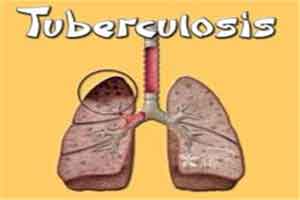- Home
- Medical news & Guidelines
- Anesthesiology
- Cardiology and CTVS
- Critical Care
- Dentistry
- Dermatology
- Diabetes and Endocrinology
- ENT
- Gastroenterology
- Medicine
- Nephrology
- Neurology
- Obstretics-Gynaecology
- Oncology
- Ophthalmology
- Orthopaedics
- Pediatrics-Neonatology
- Psychiatry
- Pulmonology
- Radiology
- Surgery
- Urology
- Laboratory Medicine
- Diet
- Nursing
- Paramedical
- Physiotherapy
- Health news
- Fact Check
- Bone Health Fact Check
- Brain Health Fact Check
- Cancer Related Fact Check
- Child Care Fact Check
- Dental and oral health fact check
- Diabetes and metabolic health fact check
- Diet and Nutrition Fact Check
- Eye and ENT Care Fact Check
- Fitness fact check
- Gut health fact check
- Heart health fact check
- Kidney health fact check
- Medical education fact check
- Men's health fact check
- Respiratory fact check
- Skin and hair care fact check
- Vaccine and Immunization fact check
- Women's health fact check
- AYUSH
- State News
- Andaman and Nicobar Islands
- Andhra Pradesh
- Arunachal Pradesh
- Assam
- Bihar
- Chandigarh
- Chattisgarh
- Dadra and Nagar Haveli
- Daman and Diu
- Delhi
- Goa
- Gujarat
- Haryana
- Himachal Pradesh
- Jammu & Kashmir
- Jharkhand
- Karnataka
- Kerala
- Ladakh
- Lakshadweep
- Madhya Pradesh
- Maharashtra
- Manipur
- Meghalaya
- Mizoram
- Nagaland
- Odisha
- Puducherry
- Punjab
- Rajasthan
- Sikkim
- Tamil Nadu
- Telangana
- Tripura
- Uttar Pradesh
- Uttrakhand
- West Bengal
- Medical Education
- Industry
Advanced diagnostics important to detect genital TB

Kolkata: The role of advanced diagnostics in detecting genital tuberculosis, which is linked to infertility in humans, was extremely important, an expert said.
A recent study by the Indian Journal of Medical Research through a survey stated that the number of women with genital tuberculosis in India increased to 30 percent in 2015 from 19 percent in 2011.
For women experiencing problems in conceiving, diagnosis was a crucial factor and timely treatment can prevent complications, the expert said.
“On a scale of ten, the importance of advanced techniques is nine. The technologies are available in India but mere availability is not enough,” Anjan Mukherjee, a microbiology specialist at AIIMS, said here.
“We must train ourselves how to avail of the technologies and to make optimal use… like what sample to take, how to send the sample, what to expect out of the report, what to do after the report comes,” Mukherjee explained.
Techniques like polymerase chain reaction (PCR) and its modifications as well as systems such as MGIT (fully automatic system for detection) have become effective tools to zero-in on the tuberculosis bacteria.
“In addition to detection, it is also extremely important to know which drug will be effective,” said Mukherjee, a consultant microbiologist and infection control physician.
The expert said a mixed bag of techniques from biopsy to advanced molecular diagnostics as well as a team of specialists from different backgrounds (gynaecologists, microbiologists, physicians etc) is essential to treat and manage the disease.
Different aspects of genital tuberculosis, including diagnostics will be discussed at a day-long workshop on January 24 organised by Srishti infertility clinic.
A recent study by the Indian Journal of Medical Research through a survey stated that the number of women with genital tuberculosis in India increased to 30 percent in 2015 from 19 percent in 2011.
For women experiencing problems in conceiving, diagnosis was a crucial factor and timely treatment can prevent complications, the expert said.
“On a scale of ten, the importance of advanced techniques is nine. The technologies are available in India but mere availability is not enough,” Anjan Mukherjee, a microbiology specialist at AIIMS, said here.
“We must train ourselves how to avail of the technologies and to make optimal use… like what sample to take, how to send the sample, what to expect out of the report, what to do after the report comes,” Mukherjee explained.
Techniques like polymerase chain reaction (PCR) and its modifications as well as systems such as MGIT (fully automatic system for detection) have become effective tools to zero-in on the tuberculosis bacteria.
“In addition to detection, it is also extremely important to know which drug will be effective,” said Mukherjee, a consultant microbiologist and infection control physician.
The expert said a mixed bag of techniques from biopsy to advanced molecular diagnostics as well as a team of specialists from different backgrounds (gynaecologists, microbiologists, physicians etc) is essential to treat and manage the disease.
Different aspects of genital tuberculosis, including diagnostics will be discussed at a day-long workshop on January 24 organised by Srishti infertility clinic.
Next Story


